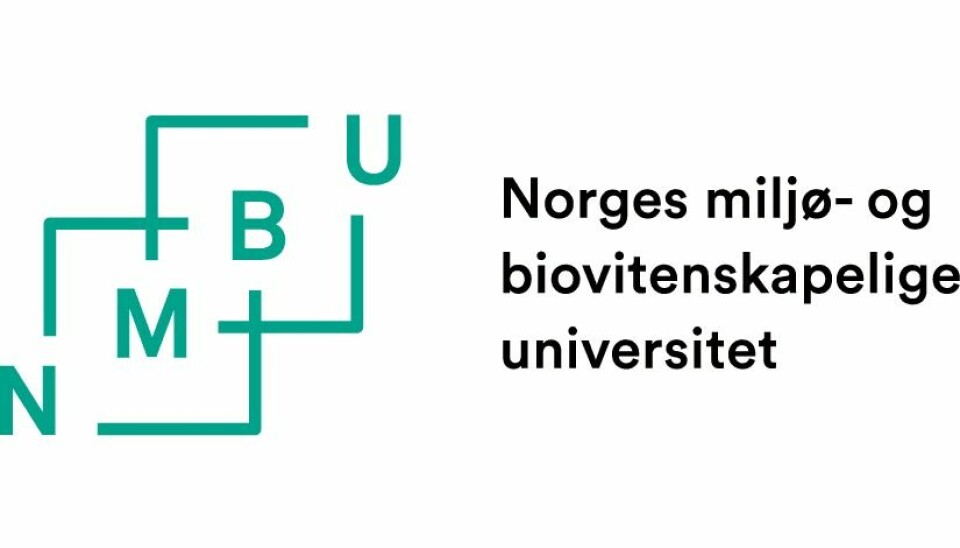Ledig stilling ved NMBU
PhD scholarship within Ruminant Nutrition
Deadline: 30.04.2019
About the position
The Department of Animal and Aquacultural Sciences, Faculty of Biosciences (BIOVIT) at the Norwegian University of Life Sciences (NMBU) in Ås, near Oslo, has a vacant 3-year PhD–position related to Ruminant Nutrition.

The Department of Animal and Aquacultural Sciences provides fundamental, innovative research and practical solutions to improve productivity and sustainability across the agriculture and aquaculture sector. The Department represents the sciences for the future within the animal husbandry fields of breeding, nutrition and ethology.
The available position will be placed within the Ruminant Nutrition and Physiology Research Group. The research covers feed evaluation, development and technology, sustainable feed utilization, strategies for methane mitigation, product quality, and production/management- and environmental questions.
The studies are carried out in the experimental animal facilities, laboratories and feed factory, and partly in field conditions, in collaboration with national and international institutions.
This project investigates the relationship of feed efficiency, methane and carbon dioxide emissions and the rumen microbiome in dairy cattle. Two lines of Norwegian Red cows bred since 30 years for high yield and low mastitis are compared. Emissions are assessed in vivo with the Greenfeed system and in vitro with batch culture. The rumen microbiome is studied in collaboration with Phillip Pope. Further collaborators are Bjørg Heringstad, Egil Prestløkken, Ingjerd Dønnem and Peter Lund (Aarhus University, Denmark).
The position is intended to start in September 2019.
The scholarship is funded by NMBU.
Main tasks
- Quantify methane (CH4) and carbon dioxide (CO2) emissions from dairy cows in vivo and in vitro
- Investigate associations between feed efficiency, methane emissions and rumen microbiota
- Compare rumen microbial heritability in 2 genetic groups of dairy cows)
Relevant literature: Hammond et al. 2016 Anim Feed Sci Technol 219:13-30, Heringstad et al. 2007 J Dairy Sci 90:2419-2426, Kunath et al. 2018 ISME J 13:603-617, Wilkinson et al. 2018 Front Microbiol 9:1095, Yanez-Ruiz et al. 2016 Anim Feed Sci Technol 216:1-18
The successful candidate is expected to enter a plan for the progress of the work towards a PhD degree during the first months of the appointment, with a view to completing a doctorate within the PhD scholarship period.
Qualifications and skills
The successful applicant must meet the conditions defined for admission to a PhD programme at NMBU. The applicant must have an academically relevant education corresponding to a five-year Norwegian degree programme, where 120 credits are at master's degree level. The applicant must have a documented strong academic background from previous studies and be able to document proficiency in both written and oral English. For more detailed information on the admission criteria please see the PhD Regulations and the relevant PhD programme description.
The applicant must document expertise and interest in the research.
Required academic qualifications
- Master degree in Animal Science. Other master degrees (or equivalent) with relevant profile can be considered
Desired academic qualifications
- Experience with laboratory and/or animal experimental work
- Experience in Ruminant Nutrition research
Required personal skills
- Affinity for animal experiments and laboratory work is essential, in particular in vivo metabolism trials and in vitro batch culture technique
- Writing of scientific papers requires good knowledge of the English language
Desired personal skills
- Curiosity and high motivation for research
- Accuracy and patience with experimental work
- Strong communication skills, both written and oral
- Analytical skills
- Interest and ability to work as a creative member of our research group
Remuneration and information
The position is placed in government pay scale position code 1017 PhD fellow, wage framework 20. PhD fellows are normally placed in pay grade 51 (NOK 449.400) on the Norwegian Government salary scale upon employment and follow ordinary meriting regulations.
Employment is conducted according to national guidelines for University and Technical College PhD scholars.
For further information, please contact:
- Angela Schwarm (Associate Professor) by e-mail: angela.schwarm@nmbu.no or by phone: +47 67 23 26 17
Application
To apply online for this vacancy, please click on the 'Apply for this job' button above. This will route you to the University's Web Recruitment System, where you will need to register an account (if you have not already) and log in before completing the online application form.
Applications should include (electronically) a letter of intent, curriculum vitae, list of publications (if any), copy of Master thesis, copies of degree certificates and transcripts of academic records (all certified), and a list of two persons who may act as references (with phone numbers and e-mail addresses). Publications should be included electronically within the application deadline.
Application deadline: April 30th 2019
Printed material which cannot be sent electronically should be sent by surface mail to Norwegian University of Life Sciences, Department of Animal and Aquacultural Sciences, P.O. Box 5003, NO-1432 Ås, within April 30th 2019. Please quote reference number 19/01546.
If it is difficult to judge the applicant’s contribution for publications with multiple authors, a short description of the applicant’s contribution must be included.
The relevant NMBU Department may require further documentation, e.g. proof of English proficiency.






